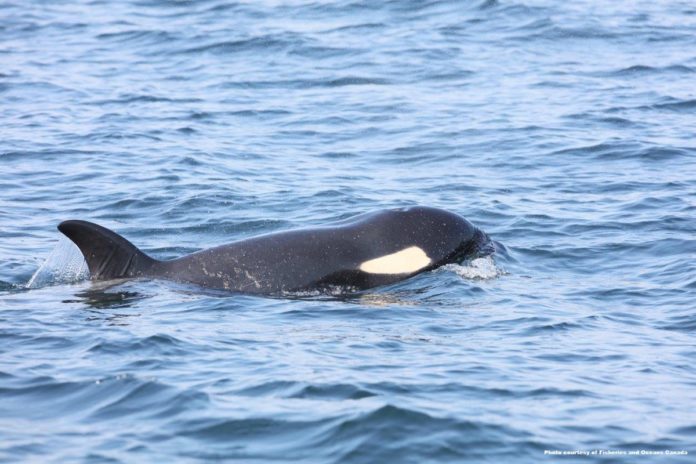As both the local and national community continue to watch killer whale J35 carry her dead calf, another one of the J-pod orcas has become a cause for concern from scientists.
J50, also known as Scarlet, is a three-year-old killer whale who was identified by National Oceanic and Atmospheric Administration (NOAA) Fisheries to be in poor health in early August.
On August 2, NOAA biologists determined that Scarlet, who appeared emaciated and lethargic, was “in poor condition and may not survive,” and worked to establish next steps to help her.
After five days in which they couldn’t locate Scarlet, Department of Fisheries and Oceans Canada (DFO) spotted her with her mother J16 on August 7 near the entrance to the Strait of Juan de Fuca, and again on August 8 in U.S. waters off the Olympic Peninsula.
Our marine mammal experts have sighted #KillerWhale J50 and her mother J16 in US waters. J35 is with this pod and is still carrying her calf. We are continuing to work with @NOAAFish_WCRO and other partners to monitor the situation. https://t.co/QUxyv284GG pic.twitter.com/fziQ0JCQc2
— DFO Pacific (@DFO_Pacific) August 8, 2018
On August 9, NOAA response teams were able to reach J-pod in Canada, and followed them into U.S. waters near San Juan Island.
Vancouver Aquarium veterinarian Marty Haulena was able take a sample of Scarlet’s breath to assess her risk of infection, and administer antibiotics.
The next step will be determining whether to move forward with a trial feeding.
#J50 Update. Progress! Response teams reached J Pod today in Canadian waters & followed them into U.S. waters near San Juan Isl. While very skinny & small, J50 kept up with her mother & siblings. Veterinarian Marty Haulena from the Vancouver Aquarium got a thorough look at her. pic.twitter.com/nnY4Rx7kTm
— NOAAFish_WCRO (@NOAAFish_WCRO) August 10, 2018
#J50 Update pt 2. The team obtained a breath sample to help assess infection & gave antibiotics. Next step is determine whether to proceed w/ trial feeding, depending on conditions & location of the whales. Great work by the teams on the water! Stay tuned for further updates. pic.twitter.com/cVzxKzsgKe
— NOAAFish_WCRO (@NOAAFish_WCRO) August 10, 2018
DFO has asked that boaters stay at least 500 metres away from Scarlet.
Southern Resident #KillerWhale #J50 needs extra care. Our team and our partners are working together to help this animal. Please help us by staying at least 500 metres away from this #whale. pic.twitter.com/zlwUfSjgQw
— DFO Pacific (@DFO_Pacific) August 10, 2018
The NOAA is continuing to update the public on the status of Scarlet and other southern resident killer whales on their website.



